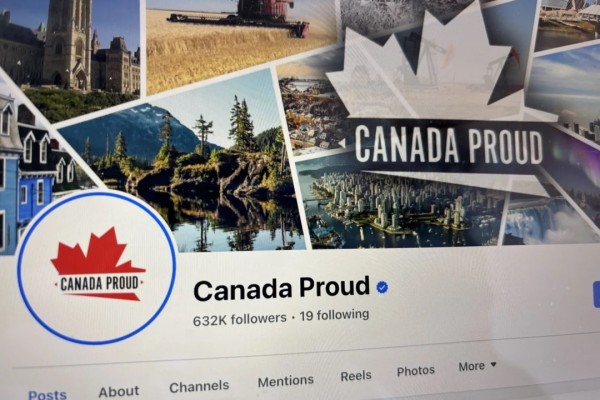Canada’s news media must be refashioned for the future
Our news media have been taken over by financiers more concerned with making a profit than with doing good journalism

Photo by Serge Tanet/Flickr
Writing about all of the problems with the ownership of Canada’s news media, as I have done for the past quarter century, has become frustrating. From sky-high concentration of corporate ownership to our hare-brained millennium experiment with the “convergence” of newspaper and television ownership to massive foreign ownership by faceless hedge funds, the problems only keep getting worse. After mostly ignoring the problems despite the repeated warnings of its own media inquiries going back more than 50 years, Ottawa finally sprang into action last year, passing the Online Streaming Act and the Online News Act to force foreign digital media to subsidize journalism here. These measures have arguably only made things even worse, as rather than pay up, Meta instead dropped news from its Facebook and Instagram social networks, which has been like MAiD for our emerging online media. The streamers have meanwhile hiked their prices, filed lawsuits and launched a campaign to “Scrap the Streaming Tax.” Opposition leader Pierre Poilievre has promised to not only repeal both acts in the highly likely event that his Conservatives form the next federal government after an election that must come within months, but to also defund the CBC, if not eliminate it entirely, which would create an even worse crisis in Canadian media.
Luckily, I have shifted from chronicling all the problems with Canadian media ownership to examining ways of solving them in my new book, Tomorrow’s News: How to Fix Canada’s Media, which was published last week. It explores such alternatives as non-profit news, co-operative ownership, news sharing schemes, earmarked digital taxes to fund news and voucher systems designed to allow citizens to decide which media get the funding. The book makes some suggestions for boosting local news, which has been the hardest hit by digital giants hogging all the ads, and for helping to restore public trust in our media, which has taken a hit from Ottawa putting bureaucrats in charge of distributing the proceeds of its online acts. Other countries that have been subsidizing their news media for 50 years or more, such as in Scandinavia, have instead installed arm’s-length funding systems with effective public complaints mechanisms, and as a result they top the annual press freedom rankings.
The worst thing that ever happened to our news media, as I wrote in my 2023 book The Postmedia Effect, was that they once made so much money that they were taken over by financiers more concerned with making a profit than with doing good journalism. Research has shown that non-profit news media do a much better job of connecting with their communities and as a result are more trusted by audience members. Tax laws that allow non-profit news media in the US to accept charitable donations have resulted in a flowering of independent local news outlets there despite not allowing them to endorse candidates for office or even show overt political bias. With the business model for legacy media cratering, some major US dailies, such as the Chicago Sun-Times and the Salt Lake Tribune, have recently converted to charitable non-profits. Ottawa enabled non-profit news media to become so-called Registered Journalism Organizations and thus issue tax receipts for charitable donations in 2019, but so far only a few have done so due to the strict requirements, including a limit on political content. Instead of continuing to throw bailout millions at legacy media like newspapers and television networks, which in Canada are mostly owned by hedge funds and telecom companies, respectively, Ottawa should attempt to foster independent non-profit news media by easing the restrictions on them.
Co-operative ownership has rescued a number of Canadian news media from closure recently, including CHEK-TV in Victoria, the Prince Albert Daily Herald in Saskatchewan, and the CN2i newspaper chain in Québec. Tax incentives helped their workers convert from corporate ownership to co-ops with Employee Stock Ownership Plans that not only provide a tax credit on their investment but also allow it to be held in an RRSP. Ottawa introduced a new type of ESOP in 2022 called an Employee Ownership Trust which allows workers to finance their ownership share out of their future earnings, and this model holds promise for media ownership. Some closed publications, such as Kamloops This Week, attempted conversion to a co-op but failed, which is why I am proposing a new arm’s-length federal agency to help facilitate the process and to also assist independent non-profit news media.
The UK and New Zealand have pioneered Local Democracy Reporting programs recently which pay the salary of reporters hired to cover every local town or city council, which has greatly boosted the supply of local news in those countries. News media outlets bid for the funding in a competitive process, and those selected must share their stories with any other interested media. Ottawa introduced a similar Local Journalism Initiative in 2018 to increase coverage of under-served communities, or so-called “news deserts,” but the funding has often gone to corporate media and proved ineffective. Ensuring comprehensive coverage of local politics would help to solve the local news crisis from the community level up, as research has shown that most people cannot name their town or city’s mayor nowadays due to the lack of local news coverage and that many instead obsess over well-publicized national politics.
Different ways of subsidizing news media have been tried in other countries, from a license fee on television sets in the UK to a tax on newspaper advertising in Sweden. A consensus seems to be forming around making the digital giants help to pay for neighbourhood improvements to the Internet from the windfall profits they are making off it. A portion of the five-percent levy recently imposed on the revenues of streamers under the Online Streaming Act is already earmarked to help support broadcast journalism, and Google has agreed to pay $100 million a year to news publishers and broadcasters, including the CBC, under the Online News Act. Ottawa’s new three-percent Digital Services Tax on large online businesses that profit from the engagement, data and content of Internet users, as well as from the sale or licensing of their data, is estimated to soon generate more than $1.4 billion a year. Canada’s own telecom giants rake in more than $15 billion a year from internet service provision, on which they make profit margins approaching 50 percent. A portion of those monopoly profits should go toward creating Canadian online content, similar to how the five-percent levy they pay on their cable TV revenues helps to fund broadcast content. The same five-percent levy on ISP revenues would add more than $750 million a year to a news fund and still leave most telcos with more than a 40 percent profit margin on them. Contributions from such sources, and even from Meta, if it could be persuaded to help fund and distribute news in Canada again, could bring in $1 billion or more a year, which could result in a Golden Age of online journalism in Canada.
From researching and writing Tomorrow’s News, I must admit that coming up with solutions to media problems sure beats simply chronicling them.
Marc Edge is a journalism researcher and author who lives in Ladysmith, BC. His books and articles can be found online at www.marcedge.com.










